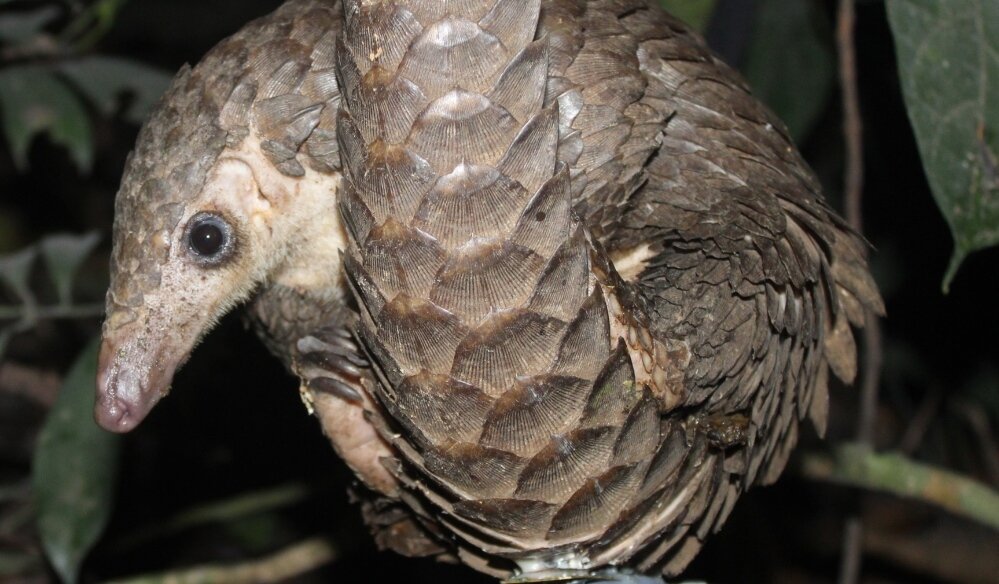
Charles Emogor wins Vice-Chancellor's award for research impact and public engagement
I am thrilled that pangolins are getting the attention they deserve and remain grateful to all my colleagues and Pangolino’s volunteers for all the hard work behind the scenes.
Charles Emogor
A Gates Cambridge Scholar has been selected for the University of Cambridge’s Vice-Chancellor’s Award for Research Impact and Engagement for his work with communities and law enforcement agents in Nigeria to curb pangolin poaching and trafficking.
Charles Emogor won the Early Career Researcher award for his work on pangolin conservation. He founded Panoglino, a Nigerian non-profit conservation organisation, which aims to raise awareness of the status of and threats to pangolins and to increase public support for pangolin conservation.
The organisation has worked with over 200 students and 1,000 adults across six communities in southeast Nigeria who are learning how to contribute to saving pangolins from extinction and has developed a tool for law enforcers to quantify the number of pangolins involved in illegal trade.
Pangolins are a group of unique mammals found only in Africa and Asia. They are the world’s only scaly mammals and are also its most trafficked wild mammal, bringing them to the brink of extinction. Illegal hunting and local and international trade threaten their existence, especially as the demand for their scales used in traditional medicine in parts of Asia continues.
Pangolino’s website includes a list of pangolin facts to educate people about them, including the fact that there is an international convention prohibiting commercial trade in wild-caught pangolins and pangolin derivatives.
The judges of the award said:”The researcher is clearly passionate and actively engaged with the local communities and other stakeholders and their use of innovative tools and creative engagement activities such as screenings, posters and t-shirts is to be commended.”
Charles [2019], who is doing a PhD in Zoology on three pangolin species in Nigeria and on the role Nigeria plays in the trade of pangolins, says: “This award reinforces my excitement in positively engaging people who are part of the study landscape. I am thrilled that pangolins are getting the attention they deserve and remain grateful to all my colleagues and Pangolino’s volunteers for all the hard work behind the scenes.”
Charles is also a 2021 National Geographic explorer and has an MSc in biodiversity conservation from the University of Oxford. He is also a member of the International Union for Conservation of Nature Special Survival Commission Pangolin Specialist Group.
*Picture credit: Pangolino












